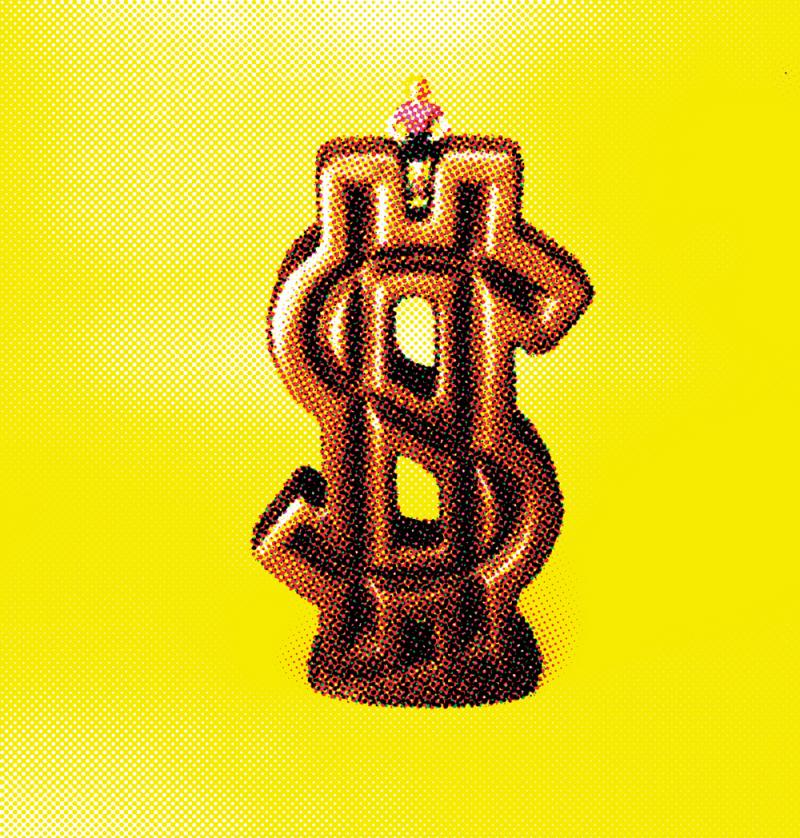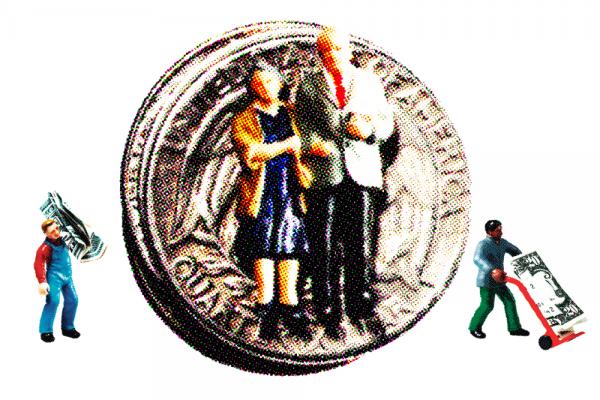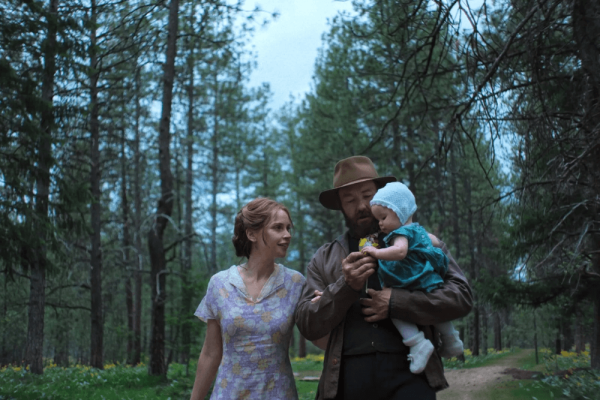MATTHEW DESMOND, a Princeton sociologist and author, has grown tired of calls to reduce poverty — because he knows we can abolish it. In his new book, Poverty, by America, Desmond explores not the lives and struggles of people who are poor — but poverty, and the conditions that cause it. And Desmond contends that the lives the rest of us live are often connected to the conditions that cause poverty.
“To understand the causes of poverty, we must look beyond the poor. Those of us living lives of privilege and plenty must examine ourselves,” Desmond writes. “Are we — we the secure, the insured, the housed, the college educated, the protected, the lucky — connected to all this needless suffering?”
Desmond is the son of a pastor, and his work is rich with spiritual metaphor and flare while grounded in the material realities of poverty and the conditions that cause it. He dedicates a chapter of his book to refuting the idea that “neoliberal” cuts in welfare spending are to blame for poverty. “There is no evidence that the United States has become stingier over time. The opposite is true,” he writes. Instead, the problem is “a fair amount of government aid earmarked for the poor never reaches them.” Sojo.net associate news editor Mitchell Atencio spoke with Desmond about his new book, community building, and capitalism. —The Editors
Sojourners: Theologian Gustavo Gutiérrez defines poverty as “premature and unjust death,” saying that “the poor person is someone who is treated as a non-person, someone who is considered insignificant from an economic, political, and cultural point of view.” Is that a good way to describe poverty?
Matthew Desmond: I think that’s a factual way to describe what poverty is. Between 2001 and 2014, the richest women in America gained three years of life and the poorest women gained 15 days. So, poverty is death. There was a study that came out very recently that showed that one of the leading causes of death in the United States is poverty. I think that when we deny people access to basic needs, and we deny them basic economic security in this rich land, we do deny them life and happiness itself.
The other part of the quote about insignificance is very interesting because it does seem that in our popular culture — our TV shows, our movies, our children’s books — there are often no portrayals of real poverty in those media, and so it’s kind of amazing how seamlessly the poor can be erased from everything we’re reading and watching and reading to our kids.
How can we understand poor people as part of our community, as not separate entities from the “rest of us”?
Finding ways to get into real relationships with people below the poverty line — not relationships of service, but real relationships where you’re texting, where you’re calling, where you’re watching football games together, where you’re invested in their kids’ lives — when we do that, all these abstract debates about poverty and segregation become incredibly concrete and real. I think that we hold ourselves accountable to them like you would be accountable to any friend and person in your community. But it often requires some of us with privilege and means to leave our comfort zone and shop in different places or be in different neighborhoods. But that real relationship, that authentic relationship, is really important here.
From a spiritual perspective, Jesus made a real effort to invite folks from very different positions in the class structure — including homeless folks, prostitutes, but also tax collectors and exploiters — to be in community with him. That is a calling for us as well.
desmond.inline1.jpg

In an interview with journalist Ezra Klein, you said the argument that “we can’t afford to end poverty” is sinful. What makes it sinful rather than wrong?
Because it’s dishonest. It’s flatly dishonest. I quoted then, and I’ll quote now, a study that was published a few years ago that showed that if the top 1 percent of us just paid the taxes they owed, we could raise an additional $175 billion a year — which is just about enough to lift everyone above the official poverty line. And that’s just stopping tax evasion, you know? If you pan out and look at our society from some distance, you see a chunk of society living lives of incredible luxury and opulence: One in eight of us owns a second home; we have multiple cars; we have this incredible high standard of living. Often that is powered by government design and the fact that the welfare state is designed to subsidize affluence a lot more than it’s designed to fight poverty. The scarcity lie that we tell ourselves is a lie, and when we repeat it — it is a sinful thing to repeat a lie in that way.
It also is not connected to God’s heart for the poor. When you see God getting angry in the Bible, it’s often because the poor are being mistreated. Jesus didn’t go into the temple and say, “Oh, money changers, can you excuse me?” He ran them out. When God is wrathful, the wrath is often because people are being exploited and excluded or treated in a racist way. There is something to be said from a faith perspective to react to that scarcity lie with the same kind of righteous anger that we see modeled in the Bible.
What role does intentional poverty — vows of simplicity or Catholic Worker movements and the like — play in abolishing poverty?
From a sociological perspective, you learn a ton. If you want to know what it’s like to get evicted, you could learn a lot by watching folks get evicted. You wouldn’t read a travel log about France by someone that’s never been to Paris, and I think that kind of move to try to get as close to the action as possible and try to be proximate to the problem, like Bryan Stevenson says — there’s a deep sociological tradition of that, and I’m proud to be working in that tradition of bearing witness.
From a spiritual perspective, I’ve never experienced the kind of generosity that I’ve experienced in very poor neighborhoods. My last book was not romantic. There were things about those neighborhoods that are incredibly painful and dangerous sometimes. But I just saw all these acts of incredible generosity and spirit and intelligence in the face of incredible adversity. We deny ourselves something when we choose to cloister away behind our affluence; the Bible is full of warnings about this. The conversation about ending poverty in America should also include this bit: The spiritual poverty that’s also encasing many affluent communities today.
I want to end poverty. I don’t want to treat it, I want to cure it. I don’t want to reduce it, I want to abolish it. The book does not call for any of us to take a vow of poverty or move into a poor neighborhood. That’s something that I’ve done in the past because of my job. I learned a lot from it, but I’m not asking anyone to do that. What I am asking is for us to become poverty abolitionists and to really figure out how we’re connected to this problem—and connected to the solution.
In a way, the book is not making a radical call. The book is asking us to strive for a safer, happier society, and that’s one without poverty. That will require some of us who have means to take less from the government. It does ask for that, and it does require those of us who live behind walls and hoard opportunity behind those walls to tear down those walls and stretch for an open, inclusive community. But what we get from those moves is our humanity back.
What have you learned about how churches can and can’t address poverty? What can they do, and what do we need to look beyond the church for?
I think churches can lead a moral revival for poverty abolitionism. Faith communities were essential to things like getting the Affordable Care Act over the line by really leveraging their moral voice. I would love churches to continue the tradition, and those who are outside of this tradition to join the tradition, of really speaking out against poverty in America and demanding an end to it. I think churches can change the “common sense” in America and help us see poverty as an abomination, as a sin, not something that we have to live with, especially in this land of incredible abundance.
What churches can’t do is solve poverty on their own. Nothing replaces the state because the state is our full community.
In a very specific way, I’ve always wondered why the church doesn’t take on the payday lending industry. These outlets, they’re right in our community, they’re all over, and they’re just incredibly exploitative: They’re pulling about $10 billion out of the pockets of the poor every single year. There’s real evidence that you could give out loans with a lot less interest and still even make a profit, break even. You could imagine a church leveraging some of its capital and saying, “Look, we’re going to give out these small-dollar loans, and the first one’s no interest. And if you pay it back on time, the next one’s free too.” I’d love to see the churches actually take on the money changers in their own community that way.
desmond.inline2.jpg

Does abolishing poverty mean abolishing capitalism?
This is a question a lot of young people are asking, but no, there’s nothing inherently capitalist about wage theft. There’s nothing inherently capitalist about the kind of exploitation that we’re tolerating in America. We’re accepting a really low-road capitalism. We’re accepting a capitalism with a lot of exploitation, no worker power, a lot of uncertainty, a lot of stress, and the lack of shared prosperity. I want a high-road capitalism. I want a capitalism that serves the people, not the other way around. I don’t think an argument for increasing worker power is an argument against capitalism. It’s an argument against exploitation.
How do we find the right enemy in addressing poverty?
There’s a low-hanging-fruit answer to your question, and there’s a root answer to your question. The low-hanging fruit: There is over $140 billion in unused aid left on the table every single year because we’re doing a terrible job connecting families to programs.
Families are not avoiding those programs out of stigma. Sometimes that has something to do with it — if you’ve ever spent a day in a welfare office, you know how degrading it can be — but a lot of it is red tape, it’s administrative burden, and we can solve this problem. Most elderly Americans who qualify for food stamps do not receive them; that’s the troubling news. The good news is if you just do a mailing that makes it very simple — has a telephone number on it, and when they dial that number, a real-life person with a pulse answers the phone and walks them through the process — you get a lot more take-up. In some states, you’ve got to get fingerprinted and photographed to get a welfare program, like you’re a criminal, so wrapping these programs with dignity and humanity really matters.
This increase in spending on [anti-poverty] programs has happened at a time when poverty’s been persistent, and so some people take that to mean that government programs don’t work. But that’s not true at all. There’s a ton of resources and evidence showing that things like housing assistance and food stamps really matter — they’re lifesavers to poor families. So, there’s a paradox there.
What we have to do is lean into that paradox because that’s when we can figure out what’s going on and how we can finally abolish poverty. When we give that paradox a fair look, I think the answer is: Clearly, we haven’t addressed exploitation in America, and because of that, our jobs have gotten a lot worse, pay has stagnated, rents have risen.
The financial exploitation of the poor takes $61 million out of their pockets every single day. The policy implication is that we don’t just need deeper investments — we need different ones.
We need programs that cut poverty at the root. Those programs are things like empowering workers, raising the minimum wage—for God’s sake, it hasn’t been raised in over 13 years — expanding housing choice for low-income Americans so they’re not forced to take the best bad option, and ending financial exploitation of the poor when it comes to accessing money and credit. This is how to build out longer-term, permanent solutions to poverty.

Got something to say about what you're reading? We value your feedback!






